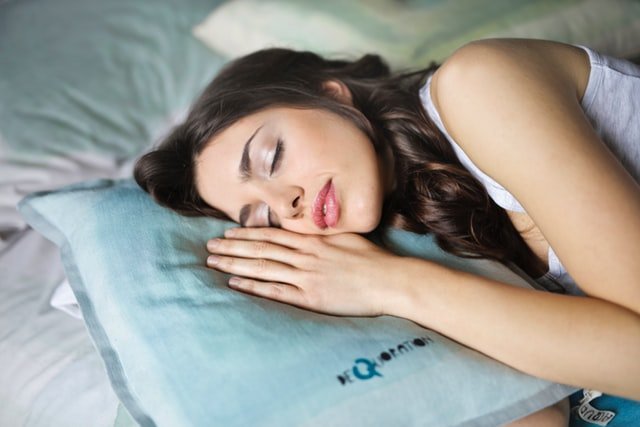
In recent research, researchers have found that stress, loneliness, and lack of sleep are all factors that can weaken your immune system and increase your risk of contracting COVID-19.
The research was conducted by a team at Rice University.
The team looked at what predicts who gets colds and different forms of respiratory illnesses, and who is more susceptible to getting sick.
They found that stress, loneliness, and lack of sleep are three factors that can seriously compromise aspects of the immune system that make people more susceptible to viruses if exposed.
Also, stress, loneliness, and disrupted sleep promote other aspects of the immune system responsible for the production of proinflammatory cytokines to over-respond.
Elevated proinflammatory cytokine production can generate sustained upper respiratory infection symptoms.
And while this previous research has centered on different cold and upper respiratory viruses, the team says “there is no doubt” that these effects would be the same for COVID-19.
Previous studies have indicated that healthy, non-immunocompromised people who spend less time around others and are exposed to the cold virus are significantly more likely to get sick and experience worse symptoms than those people who get out and socialize.
The team says that’s because of the way positive emotions buffer against stressors and evoke a favorable immune response, even while extroverted individuals are more likely to be around more people, possibly those who are carrying germs that could make them sick.
It’s an interesting paradox during the global COVID-19 pandemic, when people are strongly encouraged and in some places required to stay at home to prevent the further spread of the virus.
According to the team, another major factor that impacts immune health is sleep deprivation, which they note has been demonstrated over and over in the previous study of the topic.
People who do not consistently get a good night’s sleep—seven to nine hours for adults, with a variation on what is optimal—makes a person more likely to get sick.
Although alcohol use, certain jobs, and other factors make some people more likely to have poor sleep, psychological stress has a tremendous impact on a person’s quality of sleep.
However, even absent of poor sleep, chronic stress alone is disruptive enough to the immune system to make people more likely to get sick.
The team says the best ways to mitigate the harmful health effects of loneliness and stress during the COVID-19 pandemic are to stay connected with others through communication, particularly video calls.
There is some evidence that it may be better to video conference versus having a regular phone call to reduce feelings of isolation.
There’s something about chatting with people and having them visually ‘with’ you that seems to be more of a buffer against loneliness.
The team also notes that it is important to keep a routine during stressful times.
They say it is also sometimes helpful for people to identify inaccurate thoughts that reinforce negative thinking and emotions.
“People often convince themselves that a situation is much worse than it is by telling themselves things that are not true,” he says. “We call these cognitive distortions. For example, it is common to catastrophize a situation by convincing themselves that the worst-case scenario is the most likely scenario. When people learn to identify and then refute these thoughts, they often feel much better.”
The lead researcher of the research is Christopher Fagundes, an associate professor in the psychological sciences department at Rice University.
Copyright © 2020 Knowridge Science Report. All rights reserved.



